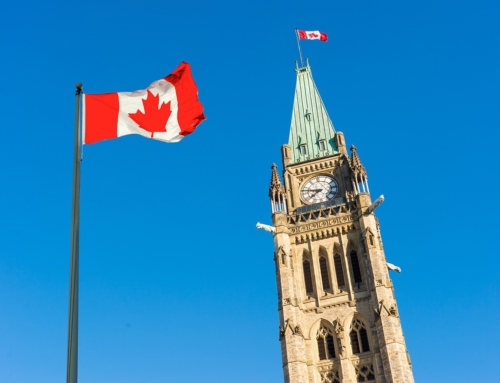Prime Minister Justin Trudeau’s commitment to record-breaking immigration is expected to see 411,000 new permanent residents make Canada their home in 2022 and drive the creation of many small businesses through the Start-Up Visa program.
“Immigration enriches our society and is one of the solutions to labour shortages,” said Trudeau two years ago. “It has a direct impact on our economy.”
The following year, his government set out to welcome more immigrants than ever to Canada.
In 2020, Ottawa announced it would welcome 401,000 new permanent residents in 2021, 411,000 in 2022 and 421,000 in 2023.
Canada Immigration Broke Records In 2021
Prior to the COVID-19 pandemic, the previous plan had set targets of 351,000 in 2021 and 361,000 in 2022.
The arrival of the pandemic led some to openly question whether Ottawa could in fact hit its 2021 immigration target.
In a Royal Bank of Canada economic report, senior economist Andrew Agopsowicz wrote about halfway through the year that Canada was likely to be able to attract only 275,000 immigrants in 2021 due to the on-going travel restrictions.
But Immigration, Refugees and Citizenship Canada (IRCC) launched new programs and streamlined its operations throughout the year. Despite border closures, travel restrictions and other challenges due to the pandemic, the IRCC managed to hit its target.
In December, newly-minted Immigration Minister Sean Fraser announced Canada had actually surpassed its goal.
“Last year, we set an ambitious goal,” said Fraser a week before the end of the year. “Today, we achieved it.
“This is a historic moment for our country, as we welcome the highest number of newcomers in one year in our history.”
2022 Expected To Be Another Record-Breaking Year For Immigration
In 2022, though, the Canadian government is hoping to bring in even more immigrants – 10,000 more than in 2021 – and further stimulate the Canadian economy.
Canada’s Start-Up Visa Program is one of the ways the country is hoping to drive the growth of new businesses.
The program offers both the flexibility to start a wide variety of businesses and the opportunity to gain permanent residency in Canada for foreign nationals.
To receive permanent residence in Canada, the following criteria must be met under the Start-Up Visa Program:
- Applicants must be actively involved in the management of the business within Canada;
- The operations of the business, or an essential part, must take place in Canada, and;
- The business must be incorporated in Canada.
Canada’s Start-Up Visa program does not apply to applicants who intend to reside in the province of Quebec.
Successful candidates to the Canadian Start-Up Visa Program receive a letter of support from a government-designated entity (angel investor group, venture capital fund or business incubator).
Start-Up Visa Requires Approved Business Plan
The government-designated entity is primarily responsible to determine the viability of the applicant’s intended business and present an approved project along with a Commitment Certificate to immigration authorities. Applications are assessed on a pass-fail basis. See the list of designated entities.
Applicants to Canada’s Start-Up Visa program must meet four basic eligibility requirements:
- Have a qualifying business
- Obtain a commitment from a designated entity in the form of a Commitment Certificate and Letter of Support;
- Have sufficient unencumbered, available and transferable settlement funds, updated each year (the requirements are identical to those for skilled workers);
- Demonstrate sufficient proficiency in English or French through standardized testing (Canadian Language Benchmark level 5) ;
The required commitment from a designated entity must meet the following criteria:
- A designated angel investor group must confirm that it is investing at least $75,000 CAD into the qualifying business, or two or more commitments from designated angel investor groups totaling $75,000 CAD, or;
- A designated venture capital fund must confirm that it is investing at least $200,000 CAD into the qualifying business or two or more commitments from designated venture capital funds totaling $200,000 CAD, or;
- A designated business incubator must confirm that it is accepting the applicant into its business incubator Program.
In order to qualify, the intended business must be incorporated and carrying on business in Canada at the time the commitment is made and:
- The applicant owns a least 10 per cent of the voting rights in the corporation, and;
- No other person holds 50 per cent or more of the total amount of voting rights in the corporation.
Up to five applicants may have their application for permanent residence supported by the same business investment. However, certain applicants may be designated essential to the intended business. If any of the essential applicants withdraw their application or are refused for other reasons, all other applicants under the same business investment will see their applications terminated.
Entrepreneurs Can Get Short-Term Work Permits To Start Businesses
Applicants who have secured a Commitment Certificate from a designated entity, and who wish to begin working in the business during the processing of their permanent residence application may apply for a short-term work permit on the basis of their Commitment Certificate if the designated entity supports such a request.
To receive a work permit, an applicant must provide:
- A letter of support from the designated entity; and
- Proof they have sufficient funds to meet the low-income cut-off (LICO) for their family size, for one year.
To receive permanent residence, the following criteria must be met:
- Applicants must be actively involved in the management of the business within Canada;
- The operations of the business, or an essential part, must take place in Canada; and
- The business must be incorporated in Canada.
Canada’s Start-Up Visa program does not apply to applicants who intend to reside in the province of Quebec.
Subscribe to our Newsletter
By submitting this form, you are consenting to receive marketing emails from: . You can revoke your consent to receive emails at any time by using the SafeUnsubscribe® link, found at the bottom of every email. Emails are serviced by Constant Contact








